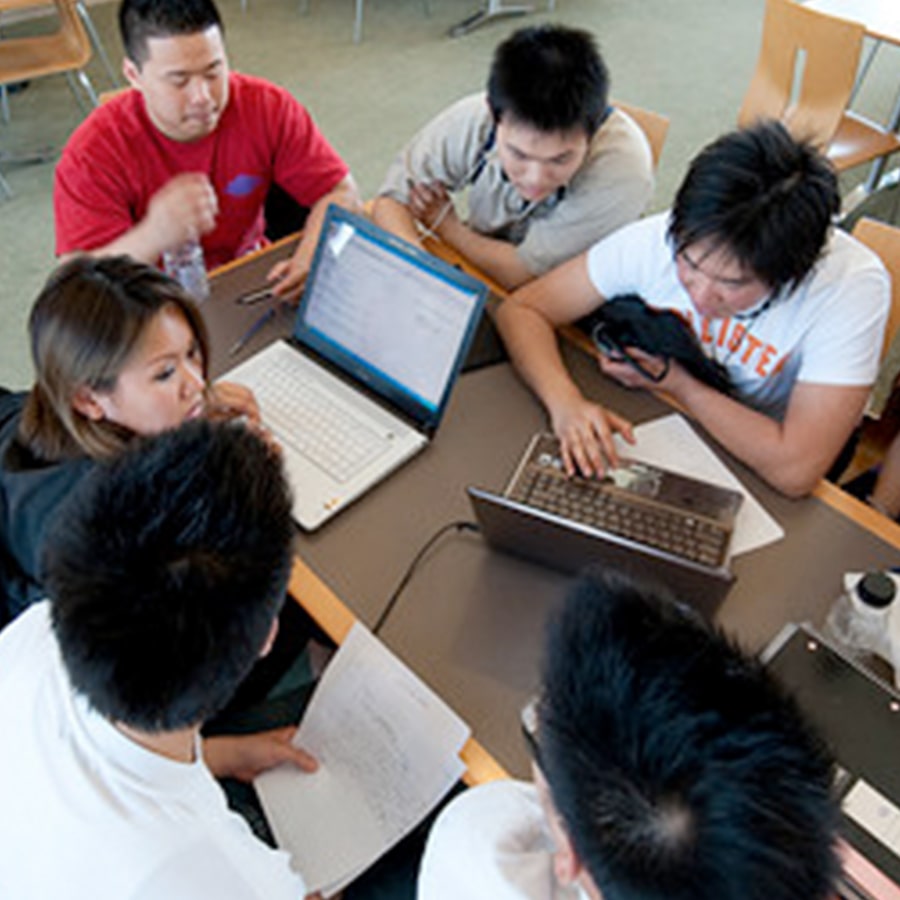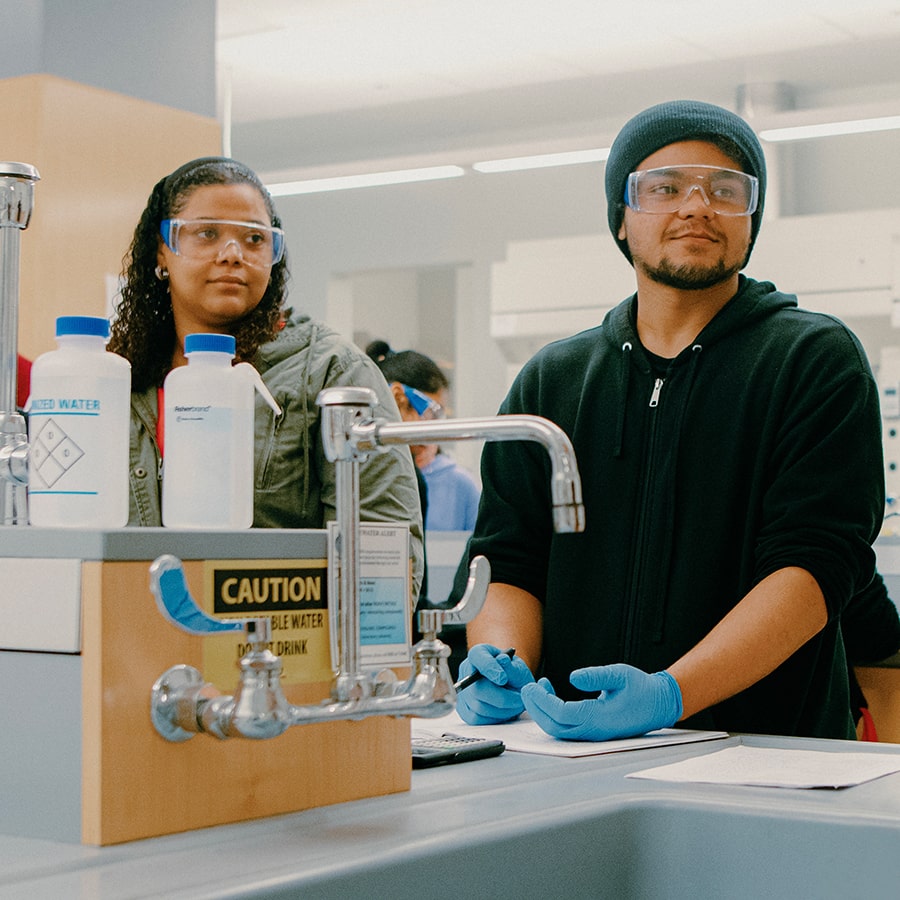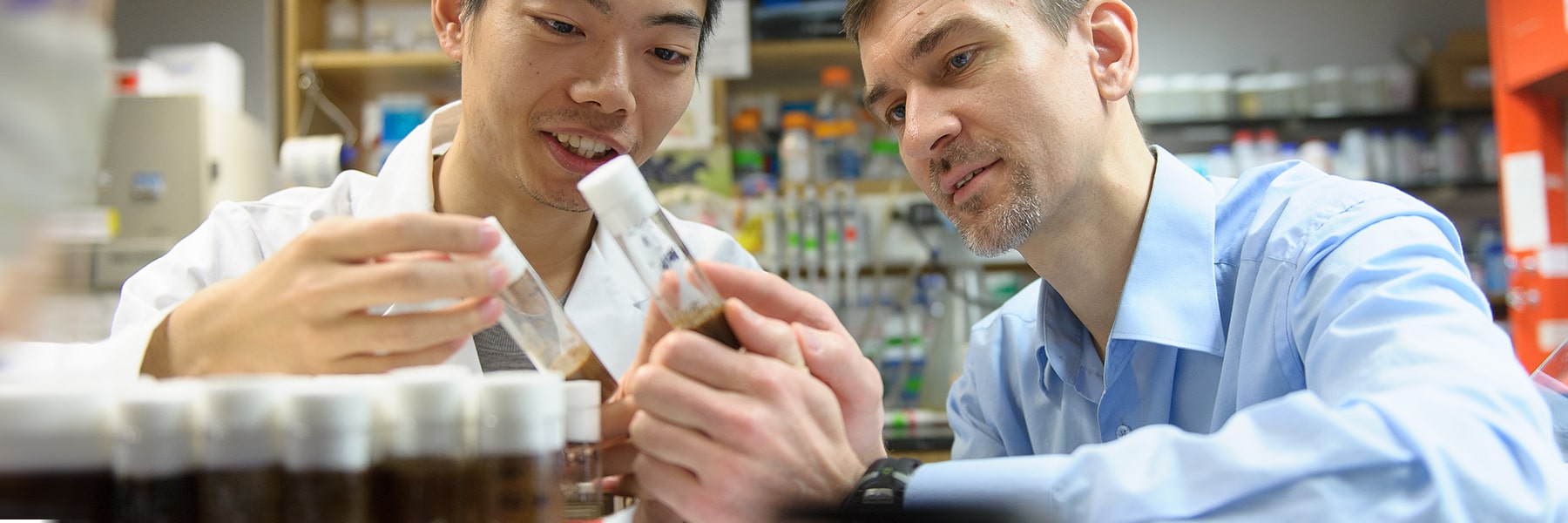Plan Your Education
How to Apply
Applicants must meet general graduate admission requirements in addition to the following program-specific requirements:
- Applicants are required to demonstrate adequate preparation at the undergraduate level in the form of relevant coursework and research experience. Given the multi-disciplinary nature of the IB, we expect that our applicants will be undergraduates with Bachelor of Science degrees in biology, chemistry, physics, mathematics, environmental or computer science or graduates with Master’s degrees in these areas.
- General GRE test scores required; for concerns, please reach out to the Graduate Program Director, Professor Mohamed Gharbi at mohamed.gharbi@umb.edu.
- Three letters of recommendation submitted with the application.
- The university requires a detailed statement of interests and intent. In the first part, include your reasons for wishing to pursue graduate studies. In the second part, describe the area of research you wish to pursue. Explain why an interdisciplinary program is best suited for your research interests, and indicate which of the three program tracks (Biochemistry, Biophysics, or Bioinformatics) you would like to pursue. It is helpful if you identify members of the faculty whose research interests are similar to your own (see list of participating faculty). These faculty members will likely serve as laboratory rotation advisors. Feel free to contact individual faculty members to discuss your interests and inquire about availability of positions.
Deadlines & Cost
Deadlines: February 15 for fall; November 1 for spring
Application Fee: The nonrefundable application fee is $75. UMass Boston alumni and current students that plan to complete degree requirements prior to graduate enrollment can submit the application without paying the application fee.
Program Cost Information: Bursar's website
Curriculum
Core Courses (5 Credits)
- INTR-D 601 - Integrative Biosciences Graduate Program Seminar 2 Credit(s)
- BIOL 650 - Scientific Communication 3 Credit(s)
Track Courses (16 to 18 Credits)
Complete five courses.
Three courses must be from your declared track.
One course must be taken in each of the other two tracks.
Biochemistry Track
- BIOL 612 - Advanced Cell Biology 3 Credit(s)
- BIOL 676 - Advanced Molecular Biology Lecture 3 Credit(s)
- BIOL 679 - Protein Chemistry and Enzymology Lecture 3 Credit(s)
- BIOL 680L - Physical Biochemistry 3 Credit(s)
or - CHEM 680L - Physical Biochemistry 3 Credit(s)
- CHEM 681 - Medical Biochemistry 4 Credit(s)
Biophysics Track
- BIOL 680L - Physical Biochemistry 3 Credit(s)
or - CHEM 680L - Physical Biochemistry 3 Credit(s)
- PHYSIC 610 - Topics in Medical Imaging 4 Credit(s)
- PHYSIC 614 - Thermodynamics and Statistical Mechanics 4 Credit(s)
- PHYSIC 645 - Cancer Biophysics 4 Credit(s)
Bioinformatics Track
- BIOL 625 - Genomics and Biotechnology 3 Credit(s)
- BIOL 664 - Bioinformatics for Molecular Biologists 3 Credit(s)
- CS 612 - Algorithms in Bioinformatics 3 Credit(s)
- MATH 648 - Computational Statistics 4 Credit(s)
Electives (6 to 8 Credits)
Complete two to three courses from any of the track courses above and from below.
- BIOL 607 - An Introduction to Computational Data Analysis for Biology 3 Credit(s)
- BIOL 615 - Immunology 3 Credit(s)
- BIOL 674 - Cell Signaling3 Credit(s)
- BIOL 677 - Advanced Eukaryotic Genetics 3 Credit(s)
- BIOL 681 - Network Biology 3 Credit(s)
- BIOL 691 - Seminar in Developmental Biology 3 Credit(s)
- CHEM 658 - Medicinal Chemistry 4 Credit(s)
- MATH 303 Introduction to Mathematical Biology 3 Credit(s) - see Undergraduate Catalog
- CS 671 - Machine Learning 3 Credit(s)
- ENVSCI 611 - Applied Statistics 3 Credit(s)
- PHYSIC 602 - Laser Optics Laboratory 4 Credit(s)
- PHYSIC 607 - Experiments in Squishy Physics 4 Credit(s)
- PHYSIC 632 - Advanced Laser Optics (with Lab 4 Credit(s)
- PHYSIC 635 - Physics on the Back of an Envelope (Estimation in Physics) 4 Credit(s)
Dissertation Course (32 Credits)
Complete at least 32 credits of dissertation research by registering for a science dissertation course to be approved by your faculty advisor.
For more information on curriculum, including course descriptions and degree requirements, visit the Academic Catalog.
Learning Outcomes
Founded in 2016, the Integrative Biosciences Program aims to train independent researchers to apply interdisciplinary approaches to solving problems in the areas of Biochemistry, Biophysics, and Bioinformatics. These rapidly developing fields require biologists, computational scientists, physicists and chemists to acquire skills and knowledge across the disciplines in order to develop a common platform aimed at advancing our understanding of the biological phenomena. Applying single-discipline approaches cannot adequately solve modern biomedical theoretical and empirical problems. The program will train researchers that are prepared to tackle such problems.
Interdisciplinary training is increasingly sought by both the academia and the industry. Our graduates will therefore be prepared to continue their training as postdoctoral researchers and will be competitive for securing positions at the biotech companies.
Learning Objectives:
- Students will learn how to interpret and critically analyze papers from scientific literature in biology, biochemistry, biophysics, and bioinformatics, depending on their specific interdisciplinary research focus.
- Students will be able to understand and answer scientific questions that integrate concepts from biology, biochemistry, biophysics, and bioinformatics, depending on their specific interdisciplinary research focus.
- Students will be able to design and independently carry out experiments that address relevant scientific questions in their chosen area of study within the Integrative Biosciences program.
- Students will be able to interpret results, and effectively communicate their scientific work in both oral and written formats, thus demonstrating proficiency in conveying complex ideas across multiple scientific disciplines.
- Graduates will be prepared to continue onto the next phase of their career. More specifically, as postdoctoral researchers, they will be equipped with the interdisciplinary skills needed in academia. And as candidates for biotech industry, they will be competitive for securing positions given that interdisciplinary training within the biotech industry is highly valued.
Graduation Criteria
Complete 60 credits from a minimum of nine courses including two core courses, five track courses, two to three electives, and 32 credits of dissertation.
Doctoral Candidacy: Pass a written qualifying exam in four topics as well as an oral qualifying exam which includes the defense of their dissertation proposal.
Dissertation: Compose and defend a dissertation based on original research.
Statute of limitations: Eight years.
Contact
Graduate Program Director Mohamed Gharbi
mohamed.gharbi@umb.edu
Student Success Program Coordinator Velina Batchvarov
velina.batchvarov@umb.edu
(617) 287-3283

Computer Science
Learn more about UMass Boston's Computer Science department, our research, and our faculty.
Explore the Department of Computer Science
College of Science & Mathematics
Learn more about the faculty, research, and programs that make up our College of Science and Mathematics.
Explore Now